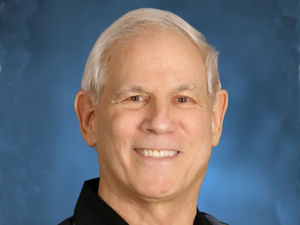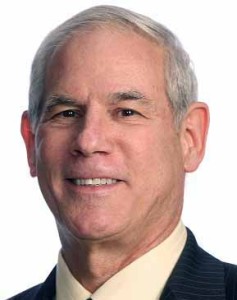
Medicare: Open Enrollment and You
Medicare riddle: What do Annual Open Enrollment and Halloween have in common? Each year they seem to start earlier and earlier. Halloween candy appears on store shelves in September along with health plan solicitations in mailboxes, on TV and radio.
When individuals “age into” Medicare, the plan selection process can be a daunting and challenging experience. When I initially meet prospective clients in their homes, I often see piles of solicitations strewn across tables where they have unsuccessfully tried to compare the multiple options available in their county. The window of opportunity for selecting coverage begins three months prior to one’s 65th birth month, although we recommend that you investigate options up to six months prior to your birth month.
Each year, Annual Open Enrollment mirrors the “aging in” period, and over eight weeks offers consumers time to learn about plan design changes that have been approved by the Center for Medicare and Medicaid (CMS). The period runs October 15 through December 7; carriers can present their 2022 plans on October 1, but they cannot process applications until October 15.
Open Enrollment provides multiple opportunities to consider these options:
- Switch from an Advantage plan to another.
- Individuals with Medigap plans
- can consider another prescription drug plan (Part D) or
- terminate an Advantage plan and return to original Medicare (not recommended) and select a stand-alone Part D.
- If a beneficiary is happy with their existing coverage no decision is necessary as coverage will automatically roll over to their carrier’s 2022 plan design.
With each passing year, the competition for new members becomes more aggressive, prompting plans with enhanced benefits that can include home health care, hearing aids, eye wear, and transportation, just to name a few. When considering plan benefits, it is essential not to overlook plan provider networks and drug formulary, or a list of generic and brand name prescription drugs covered by your health plan. Participation in each can change each year and confirming the status of your doctors and drugs in the 2022 plan is important.
To aid in understanding changes, CMS requires each carrier to provide the Annual Notice of Change (ANOC) document. This alerts clients of their benefit changes from year to year, i.e., copay, deductibles, etc. The ANOC is an important document to review; in my experience, clients can often overlook this document in their regular mail delivery.
Other than allowable Special Enrollment Periods (SEP), there are few exceptions to change coverage during a calendar year. It’s important to be aware of the available options to avoid costly errors. For example, when confirming drugs in the formulary, you may find one carrier categorizes a drug as a Tier 2, when the same drug is categorized a Tier 3 by another carrier. A carrier can also change the Tier designation of a drug from one year to the next. The difference may cost the patient significantly over the next year if not noticed when confirming plans.
My goal in writing this article is to provide insight to those looking at Medicare, as decisions can be complicated and once made, can’t be changed for the calendar year unless you qualify for an SEP designation. Take time to consider options; a licensed health agent, certified annually to represent plans with Medicare contracts, can be a vital part of a risk adverse strategy. The role of an agent is to represent their client with no monetary incentive to favor one carrier over another, as their compensation is the same for each plan and regulated by CMS.
 Since 2009, licensed health and life insurance agent (and Tucker resident) Bob Smith has represented major health insurance carriers for the ACA Marketplace, Medicare, Medicaid, Ancillary Plans and life insurance. For a free no-obligation quote and review of your health coverage programs call Bob at 404.593.9663 or email Bob@BobCareForYou.com. For additional insight, visit BobCaresForYou.com. From Obamacare to Bidencare to Bobcares℠ – Helping Families Protect Their Health, Wealth and Assets.
Since 2009, licensed health and life insurance agent (and Tucker resident) Bob Smith has represented major health insurance carriers for the ACA Marketplace, Medicare, Medicaid, Ancillary Plans and life insurance. For a free no-obligation quote and review of your health coverage programs call Bob at 404.593.9663 or email Bob@BobCareForYou.com. For additional insight, visit BobCaresForYou.com. From Obamacare to Bidencare to Bobcares℠ – Helping Families Protect Their Health, Wealth and Assets.

GABB COVID-19 Meetings on Tuesdays
During this international crisis, things change rapidly and frequently. To help our members, small businesses, and others, GABB has created a COVID-19 page with the best information we have about what is happening in Georgia. The GABB also plans to hold weekly 30-minute Q and A sessions on Tuesday mornings at 10 a.m. to take stock of what is happening in our world. Information on how to join the meeting is listed below. Also, if you miss a meeting, you can view a recording of the meeting at the link posted below.
If you are NOT getting emails from GABB about these meetings, and you want to, please email Diane Loupe at georgiabusinessbrokers@gmail.com. Please check your spam filter to be sure our emails aren’t being sent there.
PAST GABB ZOOM Meetings
- May 12, 2020 Meeting Recording
- GABB Board member Kim Eells, Senior Vice President, SBA Business Development at Georgia Primary Bank, discussed the PPP program including spending requirements. She also said that money was still available, although her bank isn’t taking new applications. A GABB member said that a client had taken advantage of loan forbearance and had been rejected for a home loan as a result.
- May 5, 2020 Meeting Recording
- SBA Banker Thomas Rockwood discussed updates to the PPP program, Shannan Collier Stalvey talked about new liability waivers, several GABB lawyers talked about the limitations of force majeure clauses, Bob Smith talked about insurance, Russ Hall said now is a terrific time to market and get people on the phone, and other GABB members added their questions and experiences.
- April 21, 2020 Meeting Recording.
- Password: 2w=!WrX@
- Topics discussed: Remote closings, PPP loans, applying for loans, best strategies for business brokers, healthcare options.
- SBA Banker Leigh Milton shared the following documents related to several SBA programs
- April 14 Meeting Recording:
Access Password: Y2*@&Ikt- Topics discussed: Applying for SBA loans, healthcare options, best strategies for business brokers.
GABB’s invitation to a scheduled Zoom meeting.
Topic: GABB COVID-19 Meeting
Time: Apr 28, 2020 10:00 AM Eastern Time (US and Canada)
Apr 28, 2020 10:00 AM
May 5, 2020 10:00 AM
May 12, 2020 10:00 AM
May 26, 2020 10:00 AM
Jun 2, 2020 10:00 AM
Join Zoom Meeting
https://zoom.us/j/95506520094?pwd=WXdtNjhQVmRSWWdDNk5nV2lHZnNKdz09
Meeting ID: 955 0652 0094
Password: 054703
One tap mobile
+13126266799,,95506520094#,,#,054703# US (Chicago)
+19292056099,,95506520094#,,#,054703# US (New York)
Dial by your location
+1 312 626 6799 US (Chicago)
+1 929 205 6099 US (New York)
+1 346 248 7799 US (Houston)
+1 669 900 6833 US (San Jose)
+1 253 215 8782 US
+1 301 715 8592 US
Meeting ID: 955 0652 0094
Password: 054703
Find your local number: https://zoom.us/u/ad549vKb9e
Job Loss and Health Insurance
By Bob Smith, North American Health Plans, Health & Life Insurance Advisor
The nation is engaged in a pandemic health crisis and social distancing orders have caused hundreds of thousands to lose their jobs and employer-sponsored group health insurance.
Being without health insurance has led to an awareness of such acronyms as: COBRA (Consolidated Omnibus Budget Reconciliation Act); ACA
(Affordable Care Act), SEP (Special Election Period); STM (Short Term Medical).
The fear of a COVID-19 diagnosis has highlighted the important role health insurance plays in our medical and financial well-being. In many instances
this has been addressed with insurance carriers waiving the cost of testing/treatment and government compensation to hospitals for treating
virus-related individuals who don’t have health insurance.
The medical and financial risk of the COVID-19 virus is being addressed with laser focus. Doctors are only scheduling appointments for COVID-19
related issues, hospitals are postponing elective surgery. Individuals fearful of being exposed to others are voluntarily delaying treatment. These
actions, combined with the lack of appropriate health insurance, can have dire consequences when other medical issues arise such as cancer, heart
disease or stroke.
Options are available to avoid being without health insurance. These are important considerations to be aware of:
- Affordable Care Act
- Limited HMO plan options
- Cost of premium potentially exceeds the premium of COBRA
- Smaller network choices than group insurance plans.
- Pre-existing condition exclusion
- Potential fee for services charged by Health Agent
A licensed health insurance advisor is a valuable resource for your health insurance needs. Avoiding buyer’s remorse is a key to a successful health
coverage strategy.
The nation is experiencing a once in a lifetime situation that has cast us in uncharted waters. Like a ship at sea, together we will navigate safely to
a port during this protracted situation. But like the ship, we cannot turn as quickly as we would like.
Bob Smith
Mobile: 404-593-9663
www.northamericanhealthplans.

Medicare’s Open Enrollment Period Especially Important for Seniors
Changes in Medicare that begin January 1, 2020 add special significance to this year’s Medicare Open Enrollment for area seniors. Open Enrollment begins on Tuesday, October 15 and runs through Friday, December 7. During this time millions of seniors are given an opportunity to reassess their coverage and consider options for the coming year.
“This is one of the most consequential Medicare Open Enrollment periods because changes enacted by Congress that will impact many seniors already on Medicare,” explains Bob Smith an independent insurance agent with North American Health Plans and a GABB affiliate.
“In 2015, Congress passed a number of changes to Medicare that received little notice at the time,” shares Jesse Slome, director of the American Association for Medicare Supplement Insurance, a national trade organization. “There’s now a limited time left to get information, make a choice and act.”
Among the changes are the elimination of Medigap Plans C and F, two of the more popular options among seniors. The Medicare prescription drug program created in 2003 will also be impacted with the closing of the infamous Medicare Donut Hole.
“It’s important to act sooner rather than later because there’s no flexibility in the government deadline,” cautions Bob Smith. To schedule a no-cost review and comparison of Medicare plans available contact Bob Smith at 404-593-9663 or Bob.Smith4HEALTH@gmail.com.
Read MoreA Look into Health Care vs Well Care
By Bob Smith
Licensed Health & Life Insurance Agent
Check-out North American Health Plans.

Robert Smith
In a few days, we will reach the halfway point in the calendar year and make the turn for the proverbial back nine. This is the time of the year when health insurance companies present their 2019 health plans to state Insurance Commissioner’s Offices, and we await with trepidation. Which insurers will offer plans in 2019, what will the plans look like, and will individuals and small (under 50) groups responsible for purchasing their own health coverage be able to afford them?
The congressional debate over the Patient Protection and Affordable Care Act — a.k.a. ObamaCare or ACA — did not end with the law’s passage in 2010 or implementation in 2014. Each year since the law’s enactment, health insurers have withdrawn from offering on and off health plans; and the cost for those not qualifying for a federal tax credit (aka subsidy) based upon income has increased and HMO choices become more limited. The sand under our feet has shifted mightily while the debate on how to deliver care continues. With a sense of optimism self-employed workers, independent contractors and employees without employer sponsored (and subsidized) health plans still have choices and the light at the end of the tunnel is not the oncoming train.
What respite do individuals purchasing health insurance on or off the Federal Marketplace have?
- One course is stay healthy, eat sensibly, exercise daily and adhere to our mother’s advice of eating an apple a day to keep the doctor away. Swimming in the right gene pool doesn’t hurt either.
- Since the era when doctors made house calls (“the good old days”), health insurance existed only to protect against catastrophic medical consequences. The option was to be self-insured and pay cash for the medical services rendered (www.healthbluebook.com and www.fairhealthconsumer.org). And though cash pay policies are a growing trend where patients can avoid miscoding CPT or ICD-10 codes, this isn’t medically or financially feasible upon a trip to the hospital resulting from a serious medical issue.
- There are PPO health plans that offer a cost-effective and viable alternative to HMO plans offered on the Federal Marketplace. The plans provide a strong network of doctors with premiums typically offering savings of 50% or more, critical illness supplements and other valuable imbedded benefits. These plans also work in tandem with or without self-pay policies at the doctor’s office. Enrollment is not limited to a narrow window and if you are not fully pleased with your existing coverage you are able to consider alternatives without having to wait till open enrollment and January 2019.
Inherent in consideration of insurance is an individual’s risk threshold. Bad things happen to good people and at the heart of wellness is prevention. An integral component in prevention is the Primary Care Physician’s role. This fact has been recognized and promoted by HIPnation, a growing concierge-style model with multiple doctor practices in the Atlanta Metropolitan area. The membership program is built upon a PrimaryPlus foundation with an eye towards outpatient care. Founded by doctors, this patient-centered concierge service is helping bring down their members’ costs and pairs with low cost insurance coverage. The resulting better care from a personal physician for $100/month with no copay and no deductible has proven to lower overall annual costs. Check-out www.HIPnation.com.
Healthcare is a complicated and what’s most important is having access to affordable health insurance and a physician practice that is patient focused with an eye on prevention that can help forestall future medical consequences.
Note: It’s important to do due diligence with non-Marketplace plans as they are underwritten and the devil is in the details.
Bob Smith
404-593-9663
With this in mind, saving more than $2,500/yr should be worth a 30 min conversation for additional information. And rest assured I am still making house calls.
Read More